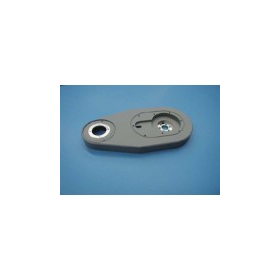To use Teflon coating for a long time, not only selection and processing technology are important, but also quality inspection. Let me introduce Yoshida SKT's quality inspection.
Here, we will introduce the measurement inspection of Teflon coating thickness. When you consult about Teflon coating, if a thickness is agreed upon during the meeting, we will conduct a thickness measurement inspection during the post-processing inspection process to confirm whether the thickness has been processed according to the meeting or the order form. ■ Unit of Thickness In coating thickness measurement, the unit commonly used is "μm (micrometers)" = one-thousandth of a millimeter. ■ Specifications of Thickness The thickness varies depending on the specifications and applications. For fluororesin coatings, it is often around 20-50μm for general purposes and more than 300μm for corrosion-resistant applications. ■ Measurement Method In thickness measurement inspections, a thickness gauge is primarily used for confirmation. This method is a non-destructive type of inspection that does not damage the coating. The thickness gauge typically measures the thickness of the coating by pressing a probe, known as a "probe," vertically against the surface of the coating processed on the metal substrate. *For more details about the thickness measurement inspection, please visit our website via the link or contact us.
Inquire About This Product
Related Videos
basic information
For more details, please contact us.
Price information
For more details, please contact us.
Delivery Time
Applications/Examples of results
For more details, please contact us.
catalog(1)
Download All CatalogsCompany information
To maximize the performance of manufacturing equipment and machine parts, Yoshida SKT derives the "optimal solution" tailored to our customers from hundreds of surface treatment technologies. - Decreased productivity due to adhesive troubles - Instability in product quality due to friction - Early deterioration of equipment due to corrosion We respond to these challenges in the manufacturing field with our extensive track record and reliable technical expertise. In 1963, we began fluoropolymer processing. In 1968, we signed a licensing agreement with DuPont (now Chemours), supporting manufacturing innovations for over 2,000 customers across various industries, from automotive to medical and aerospace. Furthermore, in 2024, we are focusing on the development of next-generation products, such as PFAS-free coatings, contributing to the advancement of sustainable manufacturing. With a three-base system in Nagoya, Tokyo, and Yamaguchi, we flexibly respond to both mass production and custom orders. Our consistent quality management system ensures that we deliver reliable quality. For solving challenges in the manufacturing field, trust the surface treatment experts at Yoshida SKT.









![[Case Study] Unable to manage the dimensions and shapes of parts that undergo surface treatment.](https://image.mono.ipros.com/public/product/image/2068203/IPROS7764406603704587704.png?w=280&h=280)
